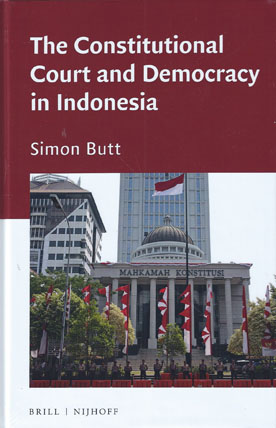
The Constitutional Court and Democracy in Indonesia provides detailed, English-language analysis of Indonesia's Constitutional Court. Established in 2003, the Court has been at the forefront of democratic reform in Indonesia, shaping the rules under which Indonesian elections are run, enforcing democracy-related rights, and resolving hundred of electoral disputes. The Court has established itself as an accessible and largely professional body that actively and independently performs its functions and one which does not shy away from difficult cases.
It has earned the respect of Indonesian citizens and members of government who comply with the Court's decisions as a matter of course, despite the Court's lack of official enforcement powers. Many of the Court's decisions have been controversial, yet criticism has focused on the perceived unfairness of the outcomes. This book seeks to forge a new path in this debate by offering a balanced critique of the Constitutional Court's jurisprudence and decision-making practices.